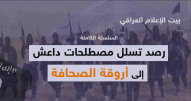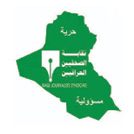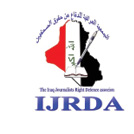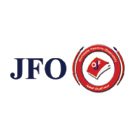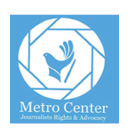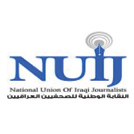"Minorities" in the Iraqi Media ... The Decline in Coverage and its Failure to Keep Pace with Their Conditions
الصفحة الرئيسية > تقارير الرصد الإعلامي > "Minorities" in the Iraqi Media...
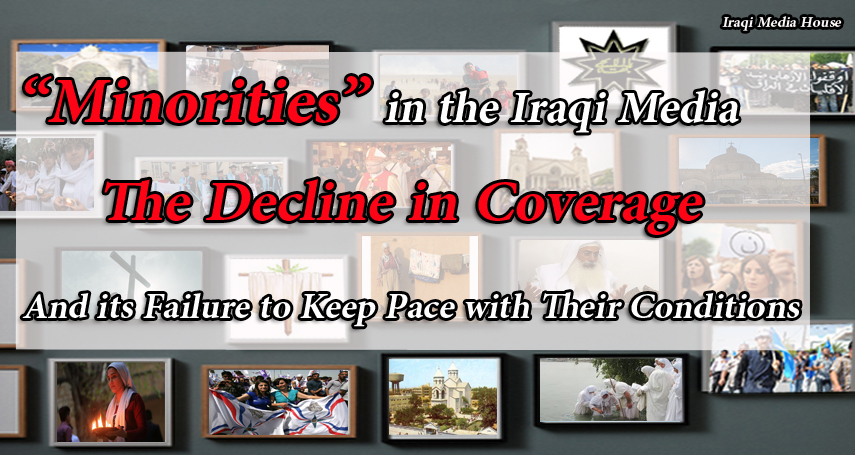
"Minorities" in the Iraqi Media ... The Decline in Coverage and its Failure to Keep Pace with Their Conditions
In its forty-second report, the Iraqi Media House monitors media coverage of minority issues, religious, ethnic and national components, and social diversity issues in Iraq for a year. This report is part of a series of specialized monitoring reports on the issue of minorities, due to its extreme importance and the shortcomings it suffers from.
The report monitors the number and quality of news coverage of minorities in the country, including more than 30 media outlets that varied between TV channels, newspapers, agencies, and news sites. The report focuses on counting the news content, its types and its handling in the media, and then analyzing it and comparing it with the full news content in the media.
Two years after the end of the battles against ISIS, the issue of civil peace and social diversity, and the amount of political and popular interaction with it, is still considered one of the pressing issues in the country because of its close association with social peace and security and the initiation of the restoration of the gaps created by ISIS in the community peace.
The new report includes monitoring dealing with media coverage of the situation of Christians, Yazidis, Turkmen, Shabaks, Baha'is, Filipic, Kakai, and other forgotten or unknown minorities, all in the light of frightening international and local reports that talk about the declining demographic representation of these minorities in Iraqi society for several reasons related to security threats or social difficulties or complex political situations.
The issues of the Christians displacement from Mosul in the summer of 2014, the kidnapping of the Yazidis in Sinjar and the migration of Shabaks in Tal Afar and the ensuing waves of large-scale migration of minorities to abroad represent an event that was not limited to being local but also received international attention on a large scale, while the local Iraqi media lacked coverage News of the crisis level.
In addition to monitoring local public media, the new report includes monitoring of more than 25 news sites for channels, radio stations, newspapers, news agencies and forums about the content of these sites and their ability to compete with the media market in the country.
Observers of the "Iraqi Media House," according to the report, found that major political and social challenges still faced minorities after the end of the military battles. These challenges are represented by demographic changes that prevent them from returning to their original towns, and plunging them into the political struggle between the ruling parties in the country, while these challenges are absent from the media and their coverage is limited to official statements and crisis times.
The best example of these issues is the situation of Yazidis in the country after thousands of them were kidnapped, killed and the destruction of their areas. This is why the "Iraqi Media House" conducted interviews with specialists in the Yazidi issue that will be published in conjunction with the release of the monitoring report.
The monitoring report reached the following results:
1- A significant decline in media coverage of minority issues. In addition to the media’s reliance on political statements as a primary source in their coverage, this represents about 95% of its content. This percentage is more than the coverage of last year that was documented by the "Iraqi Media House" in its thirty-sixth report, while the percentage of news content related to minorities compared to the rest of the coverage is about 1% of the monitoring sample.
2- Two years after the end of the battles against ISIS, we note a significant decline in media coverage of minorities and discreet investigations based on figures, data, and statistics, where the problems of the migration of Christians and the numbers of Yezidis kidnapped by ISIS and the conditions of Turkmen who are divided between Sunnis and Shiites and the Shabak minority are discussed through figures issued by international organizations and foreign media, without a local media effort in this regard.
3- The major part of the media’s coverage of minority issues is related to political issues that deal with partisan rivalries, with almost complete disregard for humanitarian issues, where the media gave political and partisan classifications of minorities and exciting descriptions of discrimination and hostility between them.
4- Large problems and disasters are still the primary engine of the media in covering minorities' issues, without initiating media coverage dealing with their human and social conditions and even their customs and traditions, as highlighting these issues would inform the rest of Iraqi society of their peers from minorities to promote national unity.
5- Media specialized in minorities and components issues face great challenges and many problems linked to its failure to market itself, and turns it into public websites without content that attracts public opinion. This is linked to the weak support that these media receive, along with the weakness of expertise and specialized cadres, which has forced them to rely on volunteer work most of the time.
Recommendations:
1- The media, especially television channels, should give minority issues an appropriate space in line with the challenges they face through field coverage, investigative investigations and TV reports dealing with their living conditions and problems facing them. In addition to the topics of their customs and traditions, this would define the vast majority of the country’s population with these components, which would push towards rapprochement and harmony among members of a diverse society.
2- Journalists and media practitioners with a variety of specializations covering minorities' issues should be aware of important backgrounds that contribute to enriching news content produced with as much information and backgrounds and pay attention to not falling into biased coverage trying to adapt these issues for other purposes.
3- Media specialized in minority issues should change ways of communicating with the public through the use of successful marketing methods, instead of turning these sites into closed platforms talking to a specific audience.
4- International and local organizations, especially those concerned with press and media issues, should build programs that help support minority media, as well as work to develop those who wish to work in this field and allocate periodic prizes on media minorities reports, which will be reflected in the production of more accurate news content for the minorities problems in the country.




